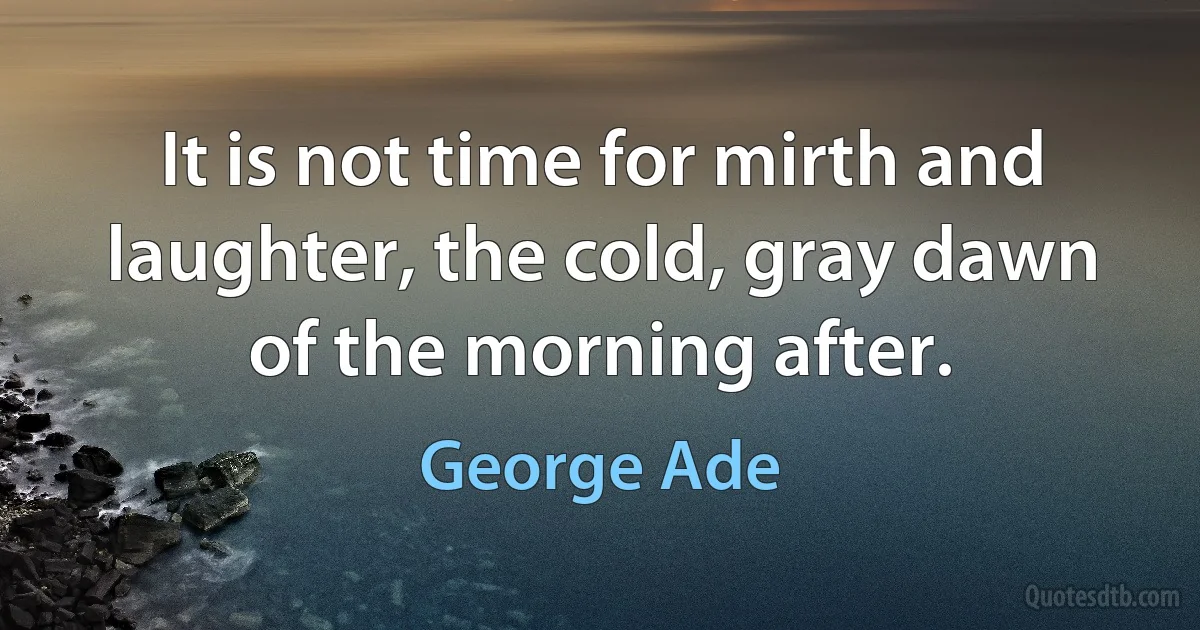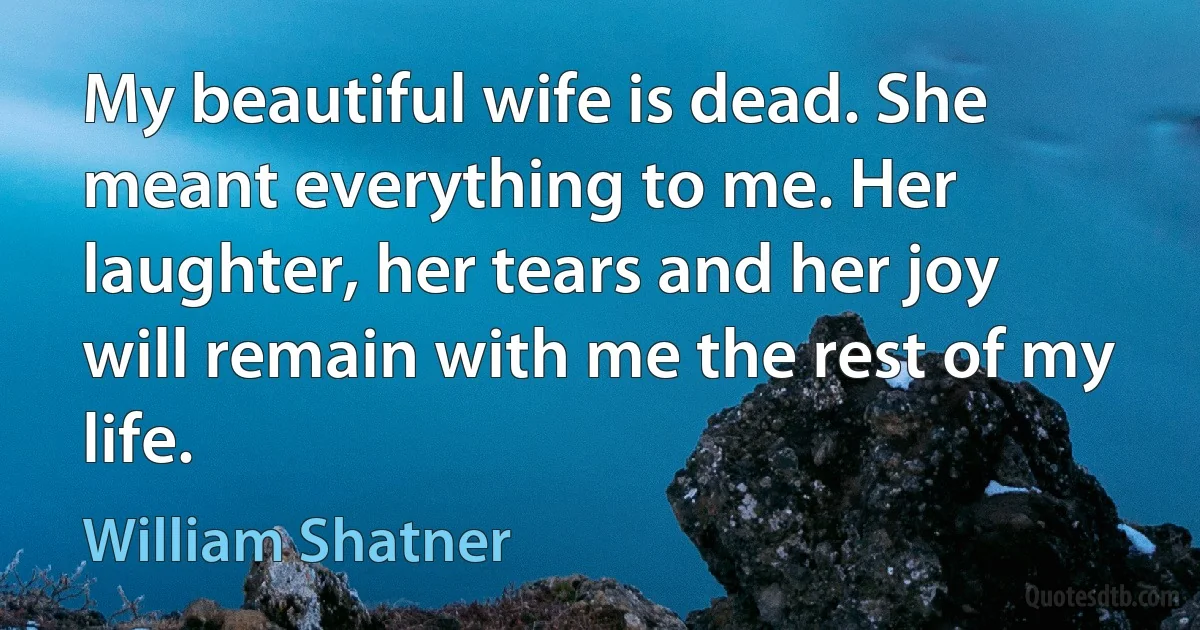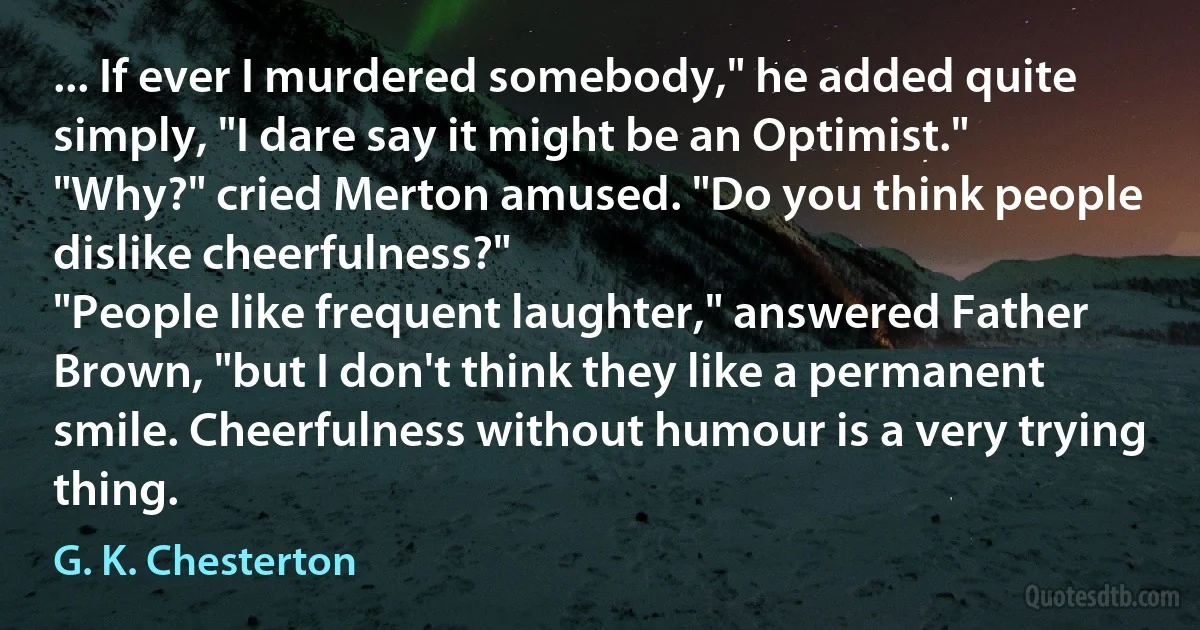Laughter Quotes - page 26
A Morning Prayer The day returns and brings us the petty round of irritating concerns and duties. Help us to play the man help us to perform them with laughter and kind faces, let cheerfulness abound with industry. Give us to go blithely on our business all this day. Bring us to our resting beds weary and content and undishonored and grant us in the end the gift of sleep.

Robert Louis Stevenson
A precious place is Paradise and none may know its worth,
But Eden ever longeth for the knicknacks of the earth.The angels grow quite wistful over worldly things below;
They hear the hurdy-gurdies in the Candle Makers Row.They listen for the laughter from the antics of the earth;
They lower pails from heaven's walls to catch the milk-maids mirth.

Nathalia Crane
Our folks understood that there was a war upon us and that school was a weapon that outdid any Glock. Yet the whole process-with its equally spaced desks, precisely timed periods and lectures, with its standardized pencils and tests-felt unnatural to me. But much as I hated their terms, having been impressed into them, I hated more the failing. So I was left with a great unconscious sadness, an emptiness which, even when I was alone, I was not fully aware. But it worked on me like an invisible weight, altered my laughter, posture, my approach to girls. Fuck what you have heard or what you have seen in your son. He may lie about homework and laugh when the teacher calls home. He may curse his teacher, propose arson for the whole public system. But inside is the same sense that was in me. None of us ever want to fail. None of us want to be unworthy, to not measure up.

Ta-Nehisi Coates
Gene Ray: Another thing, did you know your father is a fish?
Interviewer: No, I did not know my... [laughter]
Gene Ray: You know how salmon swim upstream, the male fertilizes the female eggs laid in the water?
Interviewer: Yes.
Gene Ray: The sperm fish swims upstream just like the salmon fertilizes female eggs laid in the water.

Gene Ray
New Zealand interviewer: What's it like for you guys, has it been "sex, drugs and rock 'n' roll", that stuff?
Josh: Six drugs? There's been more than that!
[All laugh]
Josh: I need to hear that question again, I'm sorry.
Dave Grohl: Why? That was the best answer you could possibly have given!
[Laughter continues]
Josh: I wake up in the middle of stuff, sometimes. 'Cause of my condition, y'know.
New Zealand interviewer: Which is?
Josh: I'm a badass.

Josh Homme
Laughter is a mental mechanism which enables us to face reality without falling into despondency or delusion. As people who have sunk in apathy seldom bother us by rushing into print, delusion (leaving aside deceit) constitutes the chief obstacle to the progress of our understanding of society, and in this context is usually assumes the form of doctrinairism couched in a mystifying jargon. A sense of humour is the most reliable external indicator of the likelihood of immunity from this folly, and of the ability to appraise social situations realistically.

Stanislav Andreski
Canned laughter: After some supposedly funny or witty remark you can hear the laughter and applause included in the soundtrack of the show itself - here we have the exact counterpart of the Chorus in classical tragedy; it is here that we have to look for 'living Antiquity.' That is to say, why this laughter? The first possible answer - that it serves to remind us when to laugh - is interesting enough, because it implies the paradox that laughter is a matter of duty and not of some spontaneous feeling; but this answer is not sufficient because we do not usually laugh. The only correct answer would be that the Other - embodied in the television set - is relieving us even of our duty to laugh - is instead laughing for us. So even if, tired from a hard days stupid work, all evening we did nothing but gaze drowsily into the television screen, we can say afterwards that objectively, through the medium of the other, we had a really good time.

Slavoj Žižek
The source of totalitarianism is a dogmatic attachment to the official word: the lack of laughter, of ironic detachment. An excessive commitment to Good may in itself become the greatest Evil: real Evil is any kind of fanatical dogmatism, especially exerted in the name of supreme Good... Consider only Mozart's Don Giovanni at the end of the opera, when he is confronted with the following choice: if he confesses his sins, he can still achieve salvation; if he persists, he will be damned forever. From this viewpoint of the pleasure principle, the proper thing to do would be to renounce his past, but he does not, he persists in his Evil, although he knows that by persisting he will be damned forever. Paradoxically, with his final choice of Evil, he acquires the status of an ethical hero - that is, of someone who is guided by fundamental principles beyond the pleasure principle and not just by the search for pleasure or material gain.

Slavoj Žižek
What is really disturbing about The Name of the Rose, however, is the underlying belief in the liberating, anti-totalitarain force of laughter, of ironic distance. Our thesis here is almost the exact opposite of the underlying premise of Eco's novel: in contemporary socities, democratic or totalitarian, that cynical distance, laughter, irony, are so to speak, part of the game. The ruling ideology is not meant to be taken seriously or literally. Perhaps the greatest danger for totalitarianism is people who take ideology seriously.

Slavoj Žižek



